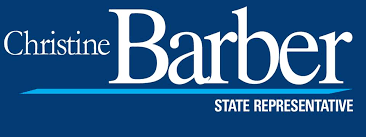Closing Corporate Loopholes: A Solution to COVID-19 Economic Crises
Recent months have been incredibly challenging for our cities, our Commonwealth, and our nation. I consistently hear from constituents in Somerville and Medford who have been out of work for months, have trouble paying rent, have fears about their children’s education or have concerns about their future. COVID-19 has created a significant public health threat and laid bare ever-present inequalities that continue to grow in our communities.
At the same time, the economic consequences of this global pandemic have caused Massachusetts’s revenues to decline by $5 to $7 billion. Because the state is required to balance our budget each year, declines in revenue means less funding for local communities, education, child care, climate readiness, public transit, housing assistance and many other critical programs. While at the federal level, the White House and Republican-led Senate continue to abdicate their responsibilities, it remains unclear when or if we will receive the federal aid necessary to fill these holes and meet our communities’ needs. As we address the state budget for this fiscal year, we must find creative ways to respond to the challenges before us. A bill I filed is one solution.
I recently filed H.D.5132, An Act to close corporate loopholes and create progressive revenue. This bill would close a corporate loophole that currently allows large corporations to shift income generated in the United States to offshore subsidiary companies – to avoid paying their fair share of taxes to support our communities. Progressive revenue means that when new revenue is raised, it is not put on the backs of low- and middle-class families, who are already experiencing financial uncertainty. The wealthy who continue to profit can and should support our recovery.
Federal law identifies what’s called Global Intangible Low-Taxed Income (GILTI) and taxes a portion of that to recoup tax dollars that have been shifted offshore. However, Massachusetts still allows businesses to exclude nearly all of GILTI income from taxes – breaking with the federal rules and allowing these businesses to continue taking advantage of a costly loophole.
My bill, H.D.5132, would allow Massachusetts to tax the GILTI provision, bringing in as much as $400 million in revenue for state programs. GILTI is only earned by large, multinational, and highly profitable corporations with offshore holdings– not our local small businesses.
Revenue from closing this corporate tax loophole is needed to fund our recovery – our response to COVID-19’s dire health and economic effects, and support our schools, fund social services, and meet our communities’ basic needs. Massachusetts voters agree–a recent poll conducted by Raise Up Massachusetts found that eight in every ten voters (84 percent) support closing the “loophole that corporations use to lower their taxes by hiding assets ‘offshore’.”
As your State Representative, I’ve spent the past 7 months connecting families and seniors with unemployment assistance, food programs, and health coverage. I’ve fielded calls from essential workers in need of basic protections and families struggling to find child care. These conversations have made it more clear than ever that investment, not austerity, is the answer to these challenging times. To meet the immense needs in our communities and prevent cuts to existing programs, local aid, and education, we must create new and progressive revenue streams.
As we navigate our COVID-19 recovery and anticipate continued economic challenges, raising progressive revenue is the only way to solve our budget crisis. Rather than asking our communities to make cuts that will throw more people into crisis, we all need to come together to ensure that our communities’ needs are met. I hope you will join me in supporting An Act to close corporate loopholes and create progressive revenue to support our communities and demonstrate how we respond to this crisis together.
